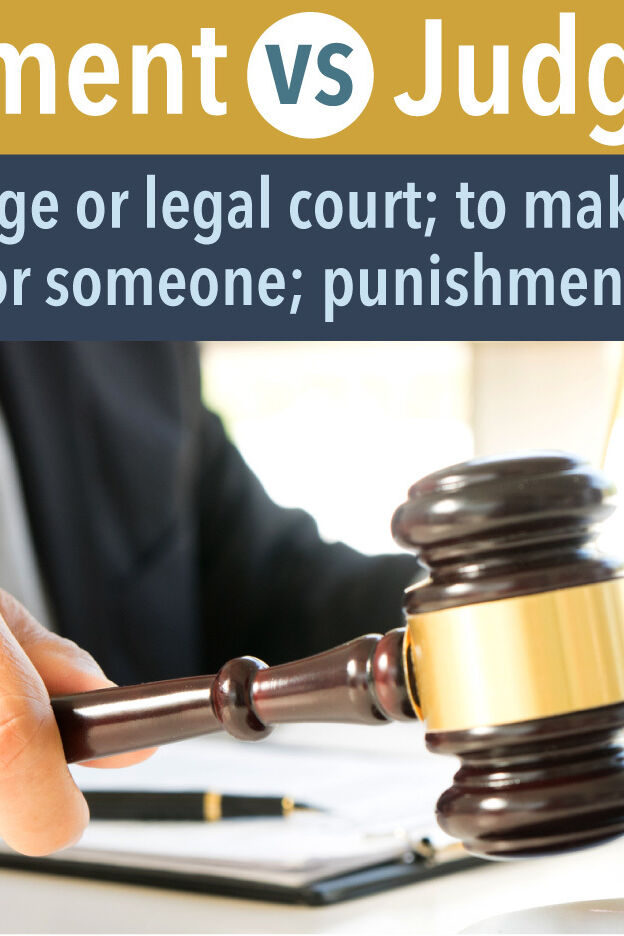

For the world’s judgment-I wash my hands thereof. Elsewhere in the English-speaking world, things are more flexible. I gave him credit for (= thought that he would have) better judgment than he showed. The nouns 'judgment' and 'judgement' most commonly mean 'the ability to make considered decisions or come to sensible conclusions.' In the US, 'judgment' is the only correct spelling, and any variation is considered a spelling mistake. Human moral judgment/ reasoning/ decision-making
#JUDGMENT VS JUDGEMENT TRIAL#
Religion( usually cap.) Also called Last Judgment, Final Judgment. the final trial of all people, both the living and dead, at the end of the world.Ī strong memory is commonly coupled with infirm judgmentĪesthetics arises from a of disinterested judgmentĪs ye will at the dreadful day of judgmentīut with admirable judgment in the teaching partĮxercise of independent skill and judgmentįeeling without judgment is a washy draught indeed.a misfortune regarded as inflicted by divine sentence, as for sin.

judgments opinions decisions cases orders oai4courts layer two: approach and what you.

Though judgement (with an e) has risen and fallen in popularity in British English, judgment remains the preferred spelling in British legal proceedings and appears more frequently in written work. While some claim that Noah Webster first recorded the spelling of judgment in his 1828 American Dictionary of the English Language, both sides of the pond have actually used the spelling judgment since the late 1600s. Many think that the difference between judgement and judgment is that the longer version is the British spelling, whereas the shorter one is the US convention. Tired of embarrassing typos? Let Grammar Coach™ do the heavy lifting, and fix your writing for free! Start now! Why are there two spellings? It stems from the Old French word jugement, which is based on jugier (“to judge”) and -ment, which is a suffix of nouns denoting an action or resulting state ( refreshment), a product ( fragment), or means ( ornament). The word judgment was first recorded in English around 1250–1300. A court can also give a judgment in favor or against a defendant, for example. Judgment also has legal definitions and refers to “ a judicial decision given by a judge or court” or “ the obligation, especially a debt, arising from a judicial decision.” A judge awards a judgment to a creditor that needs to collect money from a debtor. Its a noun that refers to the decision of a legal court. In Australia, Canada, New Zealand, South Africa and the UK. Judgment is a noun that has several meanings, including “the act or instance of judging,” and “the ability to judge, make a decision, or form an opinion objectively, authoritatively, and wisely, especially in matters affecting action.” For example: My uncle was a man of good judgment and many of us sought his advice. Judgment and judgement are actually alternate spellings of the same word with the same definition. It is true that in the US there is only one spelling: judgment. Well, the short answer is that judgment is the prevailing (“dominant”) spelling. Which one is correct? Is judgment spelled with an e? Have you ever seen the word judgment spelled two different ways? Sometimes, it appears as we spelled it here (no e), and other times it appears with an e: judgement.


 0 kommentar(er)
0 kommentar(er)
